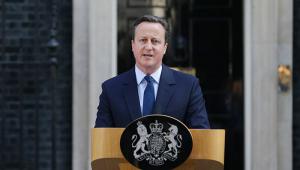The public administration select committee said the lesson from the campaign was that the civil service must do more to remain impartial in future constitutional referendums. Civil servants working for both the UK and Scottish governments took action that may have led to perceptions of bias, they stated.
Among the conclusions, MPs said the advice from Treasury permanent secretary Sir Nicolas Macpherson to rule out a currency union with an independent Scotland should not have been published. Although Macpherson stated his decision was an attempt to reassure financial markets ahead of the vote, the committee said it compromised the perceived impartiality of one of the UK’s most senior civil servants.
The report also criticised the work of Scottish Government civil servants in the publication of the White Paper on independence. According to the committee, this was expected to explain the facts and arguments in favour of the Scottish Government’s policy, but it also included a description of the Scottish National Party’s proposed programme for government. This was contingent not only on a Yes vote in the independence referendum but also upon the SNP then winning the 2016 Scottish Parliament elections.
Committee chair Bernard Jenkin said last September’s referendum created exceptional circumstances, but that did not make it acceptable for parts of the civil service to approve the use of public funds to promote the agenda of one political party or to become personally aligned with one side or the other in the referendum debate.
‘Referendums currently get no mention at all in the Civil Service Code. We suggest a limited change to the Civil Service Code to address referendums that will remove ambiguity about this. Our proposed wording reflects the advice of leading counsel. This change must be made before any future referendums, such as the possible referendum on the [European Union].’
The proposed new paragraph reads: ‘The obligations in this code apply to your conduct towards a referendum, and towards any possible answer to a referendum question, in general, and in respect of any political party, belief or persuasion. In particular, you are to have regard to any special restrictions upon ministers, or your organisation, which may apply during all or part of a referendum period (as defined in the Political Parties, Elections and Referendums Act 2000), concerning the release of information or material, or otherwise.’












